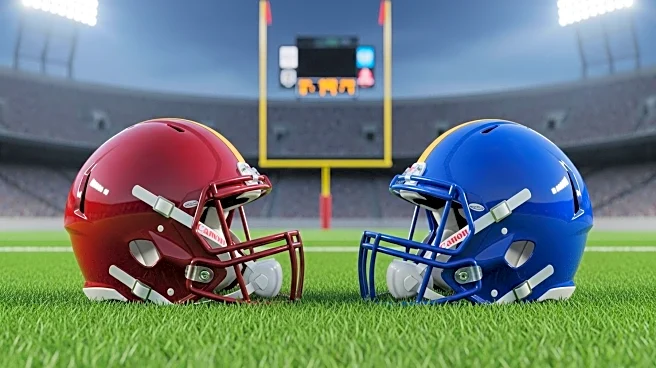What's Happening?
Florida State Seminoles football team suffered its eighth consecutive ACC loss, falling to the Pitt Panthers with a score of 34-31. Despite holding a 21-14 lead at halftime, the Seminoles were unable to maintain their advantage, ultimately succumbing to a late-game surge by Pitt. The Panthers, led by true freshman quarterback Mason Heintschel, outgained Florida State in total offense, accumulating 476 yards compared to the Seminoles' 415. The loss marks a significant setback for Florida State, which has struggled to find consistency under head coach Mike Norvell, who now holds a record of 36-30 at the university.
Why It's Important?
The continued struggles of the Florida State Seminoles football team have significant implications for the program's future. The loss to Pitt highlights ongoing issues with both offensive and defensive execution, raising questions about the effectiveness of the current coaching strategy. As the team faces mounting pressure to perform, the potential for changes in coaching staff or strategy looms large. The outcome of this game also impacts Florida State's standing in the ACC, diminishing their chances for a successful season and affecting recruitment and fan support.
What's Next?
Florida State must regroup and address the deficiencies that have led to their current losing streak. The team will need to focus on improving their defensive strategies and maintaining offensive momentum throughout games. As the season progresses, the Seminoles will face critical matchups that could determine the future of head coach Mike Norvell's tenure. The administration may need to consider strategic changes to restore the program's competitiveness and reputation within college football.
Beyond the Headlines
The loss to Pitt underscores deeper issues within the Florida State football program, including potential challenges in player development and recruitment. The team's inability to capitalize on scoring opportunities and defensive lapses may reflect broader systemic problems that require attention. Additionally, the financial implications of continued poor performance could affect the university's athletic funding and support from alumni and boosters.










